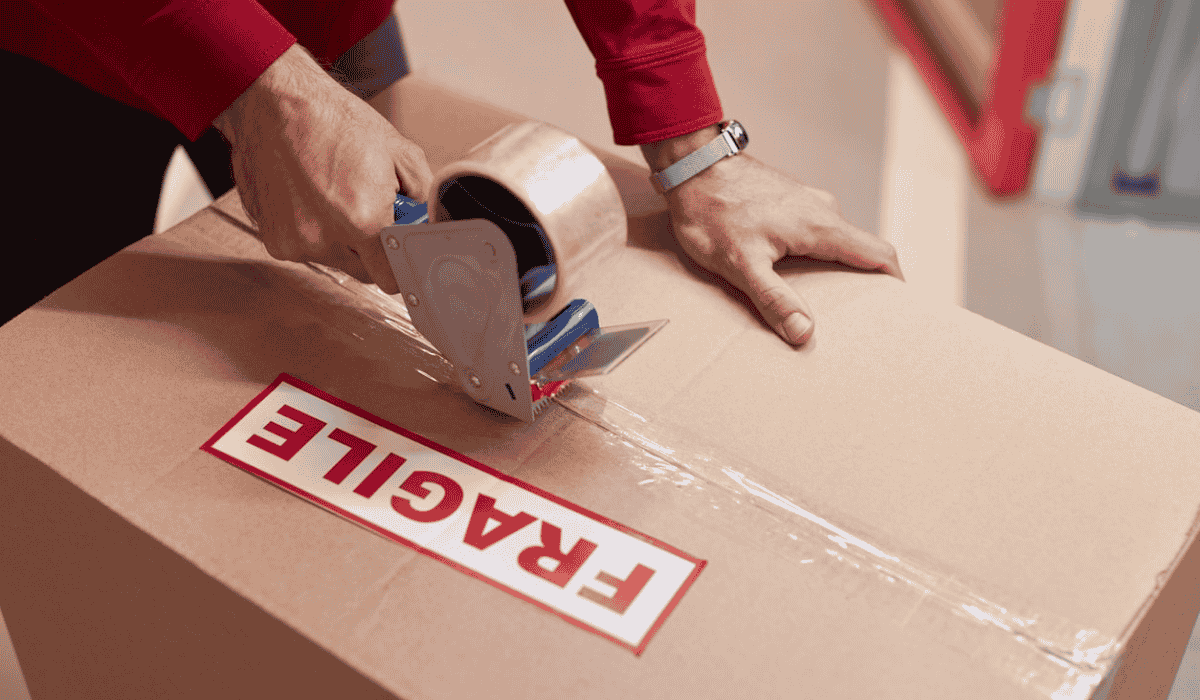How to Maximise Profits During an Estate Liquidation
Estate liquidation can be a complex and emotional process.
It involves selling off the property and belongings of a deceased person or someone who is downsizing significantly.
It is crucial to approach this process methodically and with a clear strategy to maximize profits.
This blog will guide you through the essential steps to ensure you get the best possible returns.
Understanding Estate Liquidation
Estate liquidation refers to the process of selling an estate’s assets.
These can include real estate, personal property, vehicles, antiques, collectibles, and more.
The reasons for liquidation can vary, including settling debts, distributing assets among heirs, or downsizing.
Step-by-Step Guide to Maximising Profits
Thorough Inventory and Appraisal
The first and most critical step in estate liquidation is conducting a thorough inventory.
Document every item, no matter how insignificant it may seem.
This includes furniture, jewelry, artwork, collectibles, household goods, and more.
Appraisal: Hire a professional appraiser to determine the value of the estate’s assets.
An accurate appraisal helps in setting the correct prices and ensures you do not undersell valuable items.
Appraisers have the expertise to identify rare and valuable items that may be obscure to the untrained eye.
Choose the Right Liquidation Method
There are several methods to liquidate an estate, and the best choice depends on the type and value of the assets, the time frame, and your personal preferences.
Common methods include:
Estate Sales: These are similar to large garage sales but on a bigger scale. They are ideal for selling a wide range of household items.
Auctions: Auctions can be conducted online or in person and are suitable for high-value items like antiques, collectibles, and rare art.
Consignment: High-value items can be sold through consignment shops, which take a commission on the sale.
Direct Sales: Selling directly to buyers through platforms like eBay, Craigslist, or specialty marketplaces.
Professional Estate Sale Companies
Consider hiring a professional estate sales company. These companies have the expertise to handle everything from organizing and pricing items to marketing and conducting sales.
They also have established networks of buyers, which can lead to higher sales prices.
Choosing the Right Company:
- Check their credentials and reviews.
- Understand their fee structure (usually a percentage of sales).
- Ensure they have experience with the types of items in your estate.
Marketing and Advertising
Effective marketing is crucial for attracting buyers. Here are some strategies:
Online Listings: Use websites like EstateSales.net, Craigslist, and Facebook Marketplace to advertise your sale.
Social Media: Utilise platforms like Facebook, Instagram, and Twitter to reach a broader audience.
Local Advertising: Place ads in local newspapers, community bulletin boards, and radio stations.
Signage: Place clear and attractive signs around the neighborhood to guide people to your sale.
Presentation and Staging
How you present the items can significantly impact sales. Here are some tips:
Clean and Repair: Ensure all items are clean and in good condition. Minor repairs can increase the value.
Organise: Group similar items together and create attractive displays.
Pricing: Price items clearly and competitively. Consider using a tiered pricing strategy (e.g., reducing prices on the second day of a sale).
Ambiance: Create a pleasant shopping environment with good lighting and background music.
Negotiation Skills
Being able to negotiate effectively can maximize your profits. Here are some tips:
Be Knowledgeable: Know the value of your items and be prepared to explain why they are priced as they are.
Be Flexible: Be willing to negotiate, but set a minimum price for each item.
Stay Professional: Remain calm and polite, even if buyers try to haggle aggressively.
Timing the Sale
The timing of your estate sale can impact your profits. Consider these factors:
Seasonality: Spring and summer are typically the best times for estate sales.
Local Events: Avoid dates that conflict with major local events or holidays.
Weather: Good weather can lead to better attendance for in-person sales.
Legal and Tax Considerations
Ensure you are aware of the legal and tax implications of estate liquidation. This can include:
Estate Taxes: Understand any estate tax obligations.
Permits: Obtain any necessary permits for conducting a sale.
Insurance: Ensure you have liability insurance in case of accidents during the sale.
Post-Sale Actions
After the sale, there will likely be unsold items. Here are some options:
Donate: Donate unsold items to charity and obtain a tax receipt.
Consign: Place valuable unsold items in a consignment shop.
Dispose: Properly dispose of items that cannot be sold or donated.
Conclusion
Maximizing profits during an estate liquidation requires careful planning, thorough knowledge, and effective execution.
By conducting a detailed inventory and appraisal, choosing the proper liquidation method, employing professional help, marketing effectively, and negotiating wisely, you can ensure a successful and profitable estate liquidation.
Remember to consider legal and tax implications and have a plan for unsold items.
With these steps, you can navigate the complex process of estate liquidation with confidence and achieve the best possible financial outcome.
Looking for that special something? Contact The Perfect Piece Atlanta today and let us help you find it!
FAQ
What is estate liquidation?
Estate liquidation involves selling an estate’s assets, which can include real estate, personal property, vehicles, antiques, and collectibles. It is often done to settle debts, distribute assets among heirs, or downsize.
How can I find a reputable estate sale company?
Research companies online, check reviews and ratings, ask for recommendations from friends or family, and interview several companies to understand their fee structure and experience.
What is the best method for liquidating an estate?
The best method depends on the type and value of the assets, your timeframe, and personal preferences. Standard methods include estate sales, auctions, consignment, and direct sales.
How do I determine the value of the items in the estate?
Hire a professional appraiser to assess the value of the estate’s assets. An accurate appraisal helps set the correct prices and ensures you do not undersell valuable items.
How should I price items for an estate sale?
Price items competitively by researching similar items and considering their condition. You can also use a tiered pricing strategy, reducing prices on the second day of a sale to clear out remaining items.
What are the legal and tax considerations in estate liquidation?
Understand estate tax obligations, obtain necessary permits for conducting a sale, and ensure you have liability insurance. Consult with a legal or tax professional if needed.
What should I do with unsold items?
You can donate unsold items to charity and obtain a tax receipt, place valuable unsold items in a consignment shop, or properly dispose of items that cannot be sold or donated.
By following these guidelines and being well-prepared, you can maximize profits and easily navigate the estate liquidation process.
How long does the estate liquidation process typically take?
The timeframe for estate liquidation can vary significantly based on the size and value of the estate, the chosen method of liquidation, and how quickly the items are sold. It can take anywhere from a few days to several weeks or even months.
Can I conduct the estate sale myself, or do I need to hire professionals?
While it is possible to conduct an estate sale yourself, hiring professionals can significantly enhance the chances of maximizing profits. Professional estate sale companies have the experience, resources, and networks to manage the sale effectively and attract more buyers.
What are the costs associated with hiring an estate sale company?
Estate sale companies typically charge a commission based on the total sales, ranging from 25% to 50%. Some may also charge additional fees for advertising, labor, and other services. It’s essential to understand their fee structure before hiring them.
How can I ensure that valuable items are not undersold?
Hiring a professional appraiser to assess the value of the estate’s assets is essential. Additionally, estate sale companies often have experts who can identify and price valuable items appropriately. Doing your research on similar items can also help.
What should I look for in an estate sale contract?
Ensure the contract includes detailed information about the services provided, commission rates, additional fees, sale dates, payment terms, and any other pertinent details. It should also outline responsibilities for both parties and include an explicit termination clause.
How do I handle items with sentimental value?
Decide in advance which items you want to keep for sentimental reasons. Inform family members and heirs about the liquidation process and allow them to select items they wish to keep before the sale begins. Consider creating a keepsake box for smaller sentimental items.
What precautions should I take to protect my home during an estate sale?
To protect your home during an estate sale, lock away valuables not intended for sale, remove personal documents and sensitive information, and ensure adequate security measures are in place. Professional estate sale companies can help manage crowd control and security.
How should I deal with leftover items after the estate sale?
For leftover items, consider donating them to charity, selling them through consignment shops, or holding a secondary sale. If the items are not sellable or donatable, you can also explore online marketplaces or arrange for disposal.
The post How to Maximise Profits During an Estate Liquidation appeared first on Perfect Piece.











